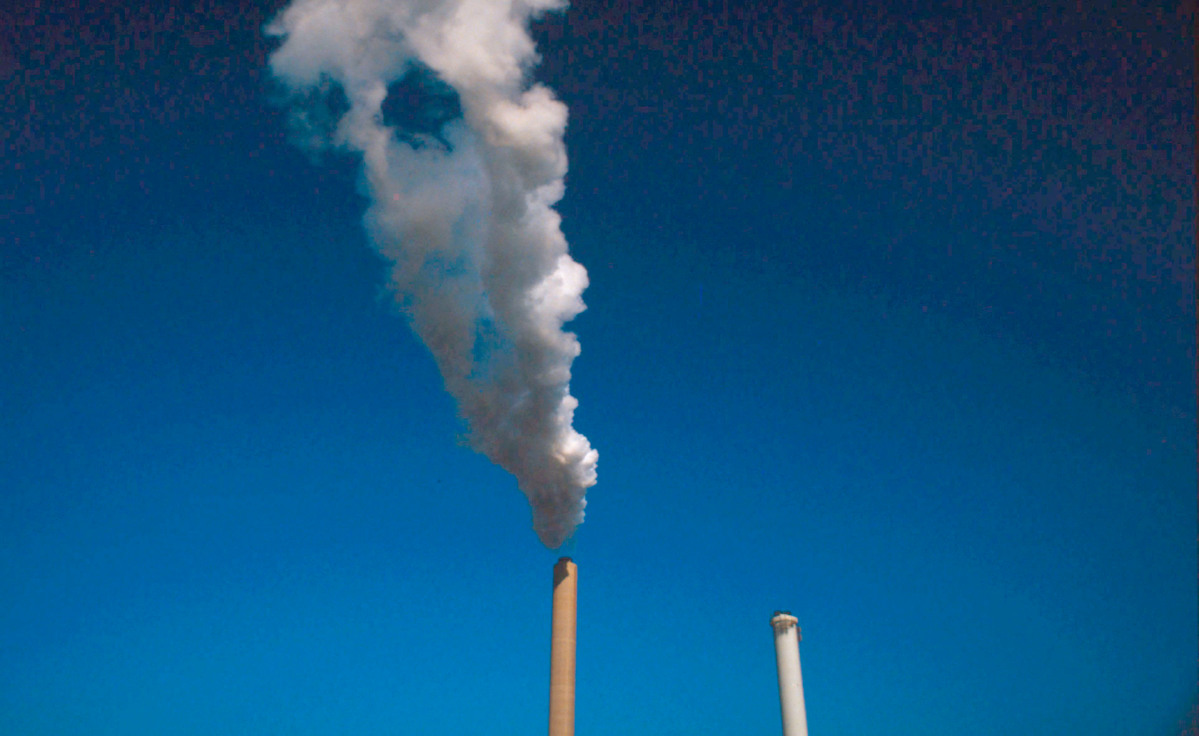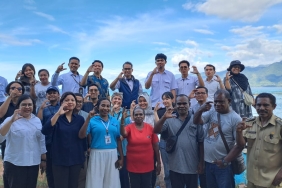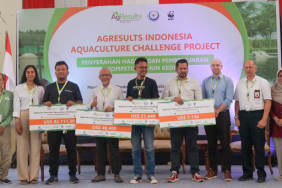NEW SURVEY: MAJORITY OF INDONESIANS SUPPORT ACTION TO TACKLE CLIMATE CHANGE AND REDUCE HARMFUL METHANE POLLUTION
91% of Indonesians support action to reduce climate change impacts, and 78% support national methane emission reduction targets
Indonesians cite oil and gas companies, waste management, and large agricultural product producers as contributing to environmental damage.
JAKARTA - According to a recent survey, most Indonesians support efforts to minimize the impacts of climate change (91% support, including 68% who strongly support). The same survey also revealed that the majority also support efforts to tackle harmful methane emissions (89% in favor, 59% strongly in favor). The survey was conducted in 17 countries, including Indonesia, with funding from the Global Methane Hub to analyze public support for climate change solutions, including efforts to reduce the impacts of harmful methane pollution.
The survey revealed that almost all (98%) Indonesians believe in climate change, with 81% believing human activity is the main cause. This figure is one of the highest among the 17 countries surveyed. This finding confirms Indonesia's position as one of the countries with high awareness and understanding of climate change. Indonesia also ranks among the top countries in terms of strong support for action to combat methane pollution. About 5 in 10 Indonesians also said they feel the impacts of climate change significantly in their lives, surpassing the percentage of respondents who feel similar impacts in countries in the Northern hemisphere.
In Indonesia, climate impacts are not just a future risk, they are already happening today," said Marcelo Mena, CEO of the Global Methane Hub. "That's why Indonesians show the greatest level of support for bold climate action among the countries we surveyed. They understand what's at stake, and they see methane reduction as a top priority to cool the planet faster.
Indonesia is a country heavily affected by floods and landslides. Climate change and environmental degradation are making the risk of these disasters more frequent and more severe. In addition, Indonesia faces the problem of suboptimal waste management, which is often characterized by fires in landfills. Indonesians strongly support (59%) action to curb methane pollution, indicating public momentum for policy action. Among the four countries surveyed in Asia, Indonesia, along with the Philippines (43% strongly in favor) and Pakistan (44% strongly in favor), represent a high demand for concrete action from policymakers, which could make Asia a global leader in support for tackling dangerous methane pollution.
"The findings of this report should give the government the confidence to implement stronger national mandates - particularly for source-separated organic waste collection and decentralized treatment," David added. "These actions are particularly important as the government plans to close 343 of 550 landfills across Indonesia. This moment is also an opportunity to integrate ambitious methane reduction targets-particularly on organic waste-into the next Nationally Determined Contribution (NDC). Raising ambition and demonstrating Indonesia's leadership at the global level, while signaling the importance of climate finance to support local, decentralized and democratic solutions, supported by community groups and the informal sector, towards a just transition process in landfill closure."
"As a climate philanthropy organization supporting Indonesia to achieve net-zero emissions underpinned by an equitable and regenerative economy, we are passionate about addressing greenhouse gases and super pollutants that contribute to global warming and climate change issues, including methane," said Suzanty Sitorus, Executive Director of ViriyaENB.
The majority of Indonesians Support Action to Address Methane Pollution
More than three-quarters of Indonesians have expressed support for climate action plans - known as National Determined Contributions - which include specific methane emission reduction targets. When asked about support for policies to address methane emissions in various sectors of the economy, Indonesians showed great enthusiasm, with support for policies in the energy sector even surpassing support for addressing methane pollution itself, including:
- Action to minimize methane emissions in the energy sector: 90% in favor (52% strongly in favor)
- Action to minimize methane emissions in the agriculture sector: 88% in favor (46% strongly in favor)
- Action to minimize methane emissions in the waste management sector: 89% in favor (60% strongly in favor
When probed further, Indonesians named oil and gas companies, large waste management corporations, and large producers of agricultural products as most responsible for environmental damage. The survey also named the national government, along with local governments, international institutions, and oil and gas companies, as having the most ability to effectively minimize the impacts of climate change.
International Survey Reveals Strong, Positive Trends in Support for Methane Gas Mitigation
Globally, the survey was conducted in 17 countries across 5 continents - Argentina, Botswana, Brazil, Colombia, Egypt, France, Germany, Indonesia, Kazakhstan, Mexico, Morocco, Oman, Pakistan, the Philippines, South Africa, the United Kingdom, and the United States. The survey was conducted online to collect data from at least 600 people in each country, and asked each respondent questions related to key issues, ranging from opinions on climate change, environmental concerns, and support for climate action, knowledge of methane emissions, and support for policies specifically aimed at reducing methane emissions. Overall, the survey findings reveal a strong international trend towards support for reducing methane emissions. On average, 82% of people in the 17 countries surveyed indicated support for policies and actions to address methane emissions. Amidst the threat of policy changes in high-emitting countries, this strong and widespread support demonstrates the public's favorability towards climate action.
Meanwhile, economic issues, which are national priorities in all countries, are most severely impacted by Global South countries. These countries are then more likely to show strong support for methane mitigation. In the Global North, the level of support for climate action is also low, in line with the low impact of the climate crisis on individual lives.
The Urgency of Methane Reduction
Methane emissions account for half of the warming we experience today, creating a threat to global society. As policymakers attempt to formulate solutions to lower the planet's temperature in the wake of record-breaking yearly highs, a 45% reduction in methane is essential to bring temperatures down to 0.3 degrees Celsius by 2040, rekindling hope for a healthy future and fulfillment of global climate commitments.
Methane is a significantly larger potential greenhouse gas contributor than carbon dioxide:
- 86 times greater than CO₂ in 20 years
- 28 times greater than CO₂ in 100 years
"This comprehensive survey, commissioned by the Global Methane Hub and conducted by Burson, offers an unparalleled picture of public attitudes toward methane emissions and climate change, providing decision makers with important insights into the public's perspective on methane reduction efforts," said Bob Torongo, Executive Vice President, Burson.
** The Global Methane Hub, ViriyaENB, WRI-Indonesia, and WWF-Indonesia can be contacted for interviews. For more information or interviews, please contact [email protected]**
About the Global Methane Hub
The Global Methane Hub organizes philanthropists, experts, non-profits, and government organizations to ensure that we are united in a strategy to maximize methane reduction. We have raised over $200 million in combined funds from more than 20 of the largest climate philanthropies to accelerate methane mitigation around the world. Visit our website to learn more about the organizations supporting this commitment.
About ViriyaENB
As Indonesia's first climate foundation, Yayasan Visi Indonesia Raya Emisi Nol Bersih (ViriyaENB) envisions a net-zero emissions society, underpinned by an equitable and regenerative economy. To achieve net-zero emissions by mid-century, we are focusing on energy-related sectors, including power, transportation, industry and buildings. For more information, visit viriyaenb.org and follow ViriyaENB on LinkedIn and Instagram.
About WWF Indonesia
WWF-Indonesia is a civil society organization with a local legal entity and global network, supported by more than 100,000 supporters. Our mission is to stop the degradation of the Earth’s natural environment and to build a future in which humans live in harmony with nature by conserving the world's biological diversity, ensuring that the use of renewable natural resources is sustainable, and promoting the reduction of pollution and wasteful consumption. For the latest news, visit www.wwf.id and follow us on X (Twitter) @WWF_id | Instagram @wwf_id | Facebook WWF-Indonesia | Youtube WWF-Indonesia
About YPBB
Yaksa Pelestari Bumi Berkelanjutan (YPBB) is a professional non-profit organization based in Bandung, Indonesia, dedicated to helping communities achieve a high quality of life for humans through a lifestyle in harmony with nature. Known for its leadership in the zero waste movement, YPBB works through community organizing, education, and support for infrastructure and policy innovation. YPBB is a member of the Global Alliance for Incinerator Alternatives (GAIA) and the Alliance for Zero Waste Indonesia (AZWI). Explore more about YPBB's programs and vision on our website.
Survey Methodology
Burson Data, Insights & Intelligence (formerly BSG) conducted a 10-minute online poll between January 14 and February 8, 2024, translated into 14 languages, in 17 countries across North America, South America, Europe, Africa and Asia.
In each country, responses were collected from people currently living in that country who are 18 years of age or older and have internet access. Weights were applied to age, gender, geography and education to ensure the sample collected was representative of adults aged 18 and over who have internet access in each country.





